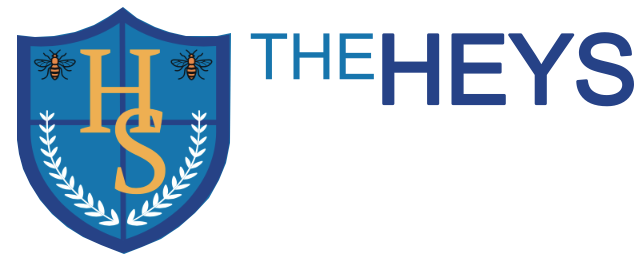What is Literacy?
Literacy is categorised into four key areas: the ability to read, write, speak, and listen. Literacy gives us the fundament skills to communicate with the world.
But it’s not as simple as it sounds. Literacy skills vary across different cultures and contexts and as the world adapts, so do we. Different cultures will have different perceptions of literacy. Students need literacy to engage with current events, communicate effectively, and understand the issues that are shaping our world.
Therefore, at The Heys School we ensure that literacy is at the core of all learning in the curriculum, not just in English lessons. For example, we know that some children who struggle with science do not lack scientific knowledge but instead they have not built up the necessary reading skills to understand what the question is asking them to do.
To ensure we bridge any gaps, at The Heys School, we pledge to give your child the knowledge, resources, and opportunities to progress within their literacy skills.
When do we use literacy?
Examples
At Work
Communicating, presenting, note-taking, teamwork, computing, leadership skills, writing reports.
In practical everyday activities at home and beyond
Books, newspapers, magazines, timetables, DVDs, television and radio programmes, signs, maps, conversations, and instructions.
As parents
Helping children with their homework, encouraging reading for pleasure (and reading with children), storytelling, reciting, vocabulary games, rhyming.
In the wider world
Text messages, social media, blogs, web pages.
What are we doing at The Heys School?
Every student takes part in literacy-based activities during form time each week – at the Heys School this is through our form time reading programme. Each form has 2 form sessions a week where they read with an expert reader (their teacher) in order to develop their reading fluency, comprehension and discussion skills. The books chosen are designed to challenge, engage and inspire our students across all year groups.
This is in addition to the literacy that forms part of the English curriculum and the literacy found across all subjects.
At the Heys School we test our students’ reading using the NGRT reading test at two points in the academic year. This information generates a reading ‘age’ profile for each student which allows teachers to plan adaptive lessons to meet our students’ literacy needs.
This information is also used to help to identify students who require further literacy support to help them to make progress. To support our students, we run several intervention programmes depending on the level of support required. These include: peer-reading groups lead by a member of the English department, dedicated IDL literacy support, small group work with an English tutor and spelling and handwriting sessions.
The Power of Reading
Reading is fundamental to a student’s development within literacy skills. But, more importantly, reading allows students to delve into fictional worlds beyond their imaginations or broaden their horizons on the world we live in. At The Heys School, we encourage our students to make the most out of our brilliant recently redeveloped library, that has a wide range of fiction and non-fiction texts available for students to borrow. We host book fairs, run regular competitions, and take part in reading events (World Book Day, Book Club, Creative Writing Club).
Useful Websites
Here are a range of useful literacy websites:
https://literacytrust.org.uk/
https://idlsgroup.com/literacy?kw=idl-literacy-Exact&gad=1&gclid=EAIaIQobChMItaGyidb0_gIVCJftCh2f4AUREAAYASAAEgKqpvD_BwE
https://www.bbc.co.uk/bitesize/subjects/z3kw2hv http://www.pobble365.com https://education.gov.scot/parentzone/learning-at-home/supporting-literacy-at-home/
https://www.phonicsplay.co.uk/
https://www.lovereading4kids.co.uk/
Help and Support
The first point of contact is your child’s form tutor or English teacher.
Some pupils receive additional support from the inclusion department after they have been identified through various assessments.
Help and support doesn’t stop with the pupils. 1 in 6 adults in England, 7.1 million people, have very low literacy skills as defined by the UK National Literacy Trust. That’s 16.4% of the population. If you identify with this statement or struggle to help your child with their homework, then the National Literacy Trust provide information on this by visiting their website below. https://literacytrust.org.uk/parents-and-families/adult-literacy/
